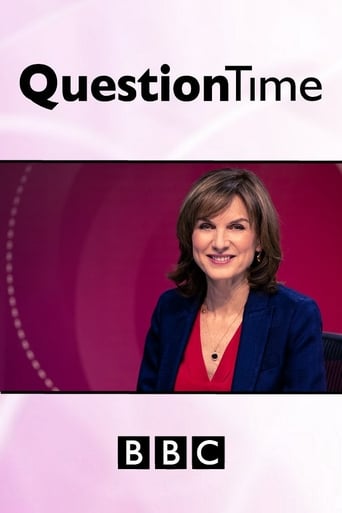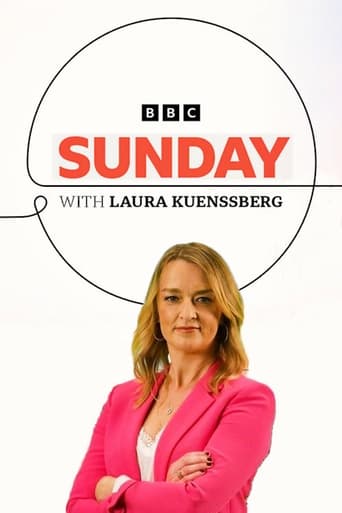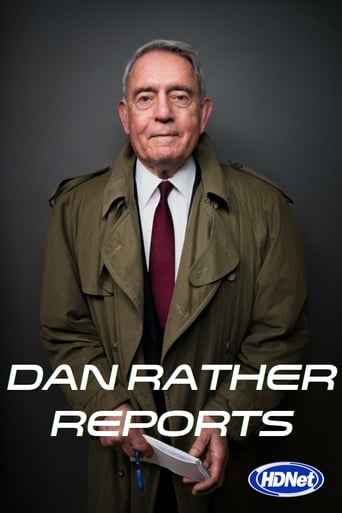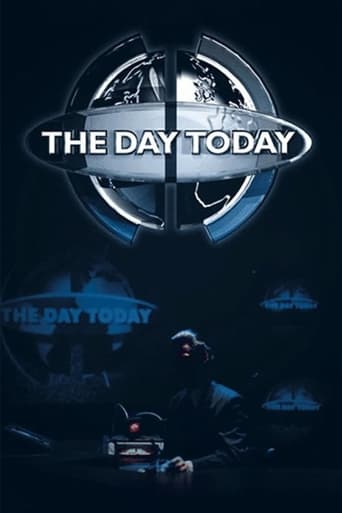Tonight Season 14
With 30 Day Free Trial!
Tonight
1999
Compelling current affairs stories that get to the heart of what matters most to viewers.
Watch Trailer
With 30 Day Free Trial!
Tonight Season 14 Full Episode Guide
A celebration of the major events of the year, such as the Queen's Diamond Jubilee, the Olympic Games, the Paralympics, and the extraordinary achievements of people in other areas.
Tonight investigates whether calls for changes in the way young people learn to drive, the introduction of a ban on late night driving, and carrying passengers could save lives.
Although recorded crime is at its lowest level in a generation, rates for re-offending are at a record high. Fiona Foster investigates what is being done to reduce these numbers.
Fiona Foster looks at how guns are finding their way into the hands of criminals and uncovers a new supply route that could see the numbers of illegal weapons in circulation rise.
As the UK faces a critical shortage of heart donors, Fiona Foster meets 20-year-old university student Will Pope, who needs a transplant to save his life.
Britain's housing market is still in crisis, five years after the start of the credit crunch. Despite steady house prices and the availability of some of the cheapest mortgages ever, millions of people are still finding it difficult to buy or sell. Tonight meets victims of the property trap and asks what can be done to get this crucial part of the UK economy moving again. With Freddie Jones.
It all started back in July with Bradley Wiggins winning the Tour de France. Then we were captivated by the Olympics and Paralympics, and Andy Murray won his first-ever major victory in an epic US Open final. It has been a glorious summer of sporting success for the UK. But with so many young people keen on sport, is enough being done to encourage them?
The issue of self-defence and the rights of homeowners to protect themselves always provoke public anger and sympathy. Tonight speaks exclusively to one couple who were locked in a nightmare after intruders broke into their home - with dreadful consequences. Presented by Julie Etchingham.
The likely answer is a reality TV star, a glamour model or a footballer's wife, rather than a ground-breaking scientist or a successful businesswoman. According to a study carried out earlier this year by Girlguiding UK, the lack of positive role models for girls and young women is damaging their career prospects and aspirations. Tonight examines these claims and talks to Olympic gold medallist Joanna Rowsell and reality TV star Amy Childs about the examples they set.
Video has become a vital tool for the police, but cameras are increasingly being turned on the officers themselves. Tonight has exclusive access during two of the biggest policing operations of the summer, an English Defence League protest in Bristol and a high risk football match in Sheffield. Is the extra public scrutiny hindering police work or helping to shape a force for the 21st Century? Presented by Geraint Vincent.
This summer has been memorable for many reasons - the London Olympics, the Queen's Jubilee, and for being among the wettest since records began. As the summer holiday season draws to a close, Tonight looks at how individuals and businesses have been left counting the cost of all that rain - and asks if it was just a bad year or if the British weather is changing for good.
This week, a controversial website launches in the UK that allows kidney donors to select who receives their organ. Julie Etchingham meets the nation's first patient to find a match using the service and the Brits already signed up to pick their recipients.
In the final part of a special three-part series in examining our relationship with food, Julie Etchingham looks at how our growing demand for food at affordable prices is leading to changes in the way it is produced. The programme visits a zero-grazing dairy farm where milk yields are well above average - but where cows are kept on concrete and indoors.
With London preparing to welcome some of the world's greatest Paralympic athletes to the 2012 Games, shocking new figures reveal that hate crimes against the disabled are at an all-time high. Tonight examines whether a welfare crackdown - which includes re-assessing whether people claiming disability benefits are fit for work - is behind an apparent change in public attitudes.
Julie Etchingham investigates in the second programme of a three-part series. Most people know the importance of healthy eating - and there are plenty of foods out there that claim to be 'fresh', 'natural' and preservative-free. But are they all really as good for us as we like to think? Or are we kidding ourselves when we go for healthy options?
It is estimated that over a million older people are lonely, and it is predicted that figure could double as the population ages and welfare cuts start to bite. With five million saying that television is their best friend, and experts linking loneliness to ill health, is it time for us all to become better neighbours?
First in a three-part series looking at our relationship with food. Julie Etchingham examines the impact of rising food prices on already tight family budgets and looks at how many people are changing their shopping habits in order to cut their grocery bills.
ITV Tonight meets some of the 30,000 Ugandan Asians who came to Britain after being expelled from Uganda by dictator Idi Amin in 1972.
You might think that the more you earn the better off you will be. But that is not always the case, where you live makes a difference to the value of the pound in your pocket. Jonathan Maitland reports on the true extent to which where you live determines your spending power.
As the school holidays begin, a look at how your children could be more at risk in their bedrooms than playing outside as thousands now have unrestricted access to the internet. The risks include pornography, online bullying and even grooming.
With just weeks to go until the start of London 2012, this programme examines some of the Games' surprising winners and losers. Pas-de-Calais in northern France has hosted 248 national Olympic teams because of its proximity to London, while thousands of landlords in the capital cannot let out their homes because of an Olympic property glut. Fiona Foster reports.
A look at how thousands are now celebrating their one hundredth birthday as we meet a centenarian marathon runner, an abseiling great grandmother, and some of the scientists racing to discover the age gene.
Jonathan Maitland looks at how attacks by dangerous dogs have reached record levels in the UK, highlighted by the recent shocking case of a two-year-old boy who received serious head injuries when he was attacked by his neighbour's dog. Campaigners are now demanding swift action from the government, but what can be done to stop the problem without punishing millions of responsible dog owners?
More than 750,000 people over the age of 65 are still in employment, and it is predicted that figure will double by 2017. Fiona Foster investigates whether it is fair on the young that everyone can work for as long as they like and meets some of Britain's oldest employees.
Fiona Foster looks at the increasing financial burden of childcare costs, with many families paying out up to a third of their income on pre-school nurseries. Britain spends more on this than almost any other country in the world, and for many families it even outweighs their mortgage payments.
Energy bills average more than 1,300 pounds a year per household and are set to continue rising. For the first time in the UK, thousands of people have got together to see if they can slash the cost. They have all agreed to switch to a new supplier at the same time - but only if they are offered a good enough deal. Jonathan Maitland finds out whether people power can pay off.
Jonathan Maitland investigates the impact of our changing climate as Britain goes from the hottest March since 1957 to the wettest April since records began. In the space of a few weeks the country has experienced wildfires, floods, sunshine and snow - what is happening to Britain's weather?
One in five of us will experience depression at some point in our lives, and the World Health Organisation predicts that the condition will be more disabling than cancer and AIDS within a decade. Figures suggest that females suffer from it more than males, but is that the real picture? Penny Marshall takes a closer look at the illness and the stigma that still exists around it.
Two consecutive dry winters have taken their toll and Britain is now facing its worst drought for more than 30 years, with millions of people having already had hosepipe bans imposed. With experts predicting that our climate will continue to get drier and warmer, this programme examines what we are doing to protect our water supplies and asks whether we all need to change the way we use this most precious resource.
Unemployment is at its highest level for 18 years, but some companies say that they are having trouble recruiting suitable staff. Jonathan Maitland meets employers who are resorting to desperate measures in an attempt to fill vacancies.
As childhood diseases such as measles and whooping cough appear to be making a comeback in the UK, Fiona Foster investigates why parents are deciding not to immunise their children. What is being done to protect the health of future generations?
The Prime Minister has called it the ‘merry-go-round’ of super-rich bosses rubber stamping each other’s inflated pay deals. With the average FTSE 100 chief executive earning over £5 million a year, Lord Sugar and EasyJet's Sir Stelios help ITV News Business Editor Laura Kuenssberg investigate why top pay continues to rise, while many of us struggle.
Jeremy Bamber, one of Britain's most notorious killers, was convicted in 1986 of the mass murder of his entire family. He was sentenced to life behind bars but has always protested his innocence. In this programme, former detective Mark Williams-Thomas is given exclusive access to new evidence that could lead to the case being referred back to the Court of Appeal.
Jonathan Maitland looks at how some local authorities are raising extra cash by putting up fees such as library fines, car parking and even social care in order to compensate for losing government grants. At a time when some councils are planning to freeze council tax, other local authorities say they have no other choice but to raise charges - and the Government accuses some local councils of using the public as cash cows.
There has been some remarkable progress in dental health recently - yet a third of children in the UK have tooth decay by the time they start primary school. Every year tens of thousands of them require hospital operations to remove their rotting teeth. Tonight investigates why this entirely preventable disease is still such a problem in 2012 and what can be done to eradicate it.
Should Britain's fastest man be free to race at the Olympics? Dwain Chambers is currently barred from London 2012 but a court case next week might force the British Olympic Association to give him a second chance. The programme follows him at home and abroad in the run-up to the decision, and reveals how he is trying to put things right. A host of current and former Olympians including Sharron Davies, Kriss Akabusi, Greg Searle and Kim Collins give their views. Should Chambers be allowed to compete or should the BOA's uncompromising stance on former drug cheats stand?
The public and private sectors have long regarded each other with suspicion, both imagining that the grass is greener on the other side. But in this age of austerity, who gets the best deal? ITV News business editor Laura Kuenssberg dispels some of those myths about long lunch breaks and jobs for life, and asks who really gets the best pay, the most generous perks and the biggest pensions.
The average adult male currently weighs 13st, but is predicted to rise to 17st over the next 50 years. Fiona Foster reports on the growing number of people in the UK being treated for obesity-related illnesses and examines the financial strain this is putting on the NHS.
Jonathan Maitland looks at whether the Government's commitment to renewable energy could increase our household bills. The Government aims for 15 percent of our energy to be provided by the likes of wind, water and solar power by 2020 - but what is the cost of going green?
Jonathan Maitland investigates the increasing problem of metal theft, which is costing the country billions of pounds a year and is affecting nearly every aspect of our lives. Attacks on power substations have doubled over the past year and millions of passengers have had their rail journeys disrupted. Hospitals have also been affected as generators have been targeted, with some operations having to be cancelled as a result. What is being done to crack down on this extraordinary wave of targeted crime?
As household debt rises to the five billion mark and the cost of living is at its highest level for years, the programme looks at how ordinary households are borrowing just to fund their day-to-day expenses. These pressures are also putting up the cost of getting into debt.
75-year-old Jim Swire, who lost his daughter in the Lockerbie bombing, travels to war-torn Libya to investigate whether Colonel Gaddafi was behind the atrocity. He meets the only man convicted of the attack, Abdelbaset al-Megrahi, and confronts the new administration in his search for answers.
Reporter Chris Choi takes to the road with a woman who has had PIP implants to investigate a story that has rocked the cosmetic industry to its core and left thousands affected.
At a time when many people are embarking on a post-Christmas diet or renewing their gym membership in an attempt to shed excess festive pounds, Fiona Foster asks whether we are unwittingly damaging our children's attitude to food. She meets teenage girls who are being treated for severe eating disorders and reports on a survey commissioned by the programme, which reveals that children as young as seven are already worrying about what they eat and how much they weigh.
Free Trial Channels
Seasons




































